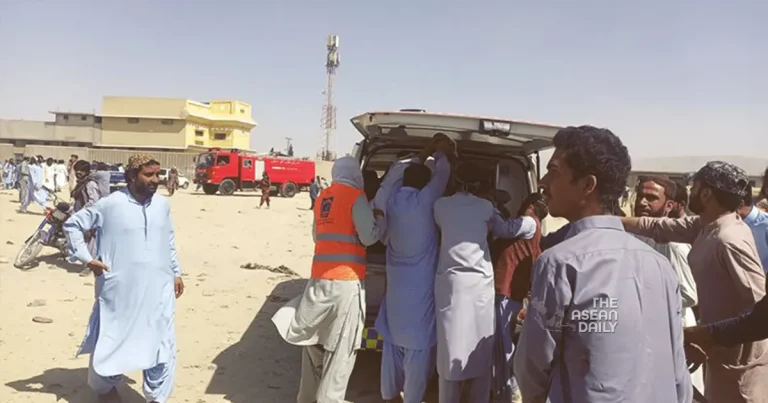29-9-2023 (ISLAMABAD) A devastating suicide bombing in Balochistan province left at least 40 people dead and dozens more wounded on Friday, as they gathered for a procession commemorating the birthday of the Prophet Mohammed, according to authorities.
Simultaneously, in Khyber Pakhtunkhwa province, hundreds of kilometers to the north, two suicide attackers attempted to storm a mosque, leading to a roof collapse that claimed the lives of four individuals.
While the majority of Islamic sects in Pakistan observe the celebration of the Prophet’s birthday, certain denominations consider it an unjustified innovation.
In Balochistan, located in the southwest of the country, officials reported that a suicide bomber detonated an explosive device as processions from local mosques converged at a meeting point in Mastung, approximately 40 kilometers south of the provincial capital, Quetta.
Ilyas Khan, a student who witnessed the incident, said, “All of a sudden, I heard an explosion… many people got injured and many were martyred.”
Local hospitals were inundated with the injured, prompting provincial authorities to make appeals for blood donations via social media platforms.
“At least 45 fatalities have been confirmed, and 70 individuals have sustained injuries in the explosion,” reported Zubair Jamali, the provincial home minister, to AFP.
A district police officer provided a slightly lower figure, stating, “I can confirm that the current death toll has risen to a minimum of 42 individuals, with over 65 others injured.”
Each year, mosques and government buildings are adorned with intricate light displays, and people participate in processions to commemorate the Prophet’s birthday.
On the same day in April 2006, a suicide bomber targeted a gathering of Sunni Muslims in Karachi, resulting in the deaths of at least 50 people.
Escalation in Violence
Friday’s tragic incident occurs as Pakistan is preparing for an election scheduled for January next year, grappling with a political crisis, a struggling economy, and a surge in militant violence driven by the Taliban’s return to power in Afghanistan in 2021.
Jan Achakzai, Balochistan’s information minister, declared a three-day mourning period.
Balochistan, Pakistan’s least populous province, is also home to several militant groups advocating for independence or a more significant share of the region’s mineral resources.
In Hangu, Khyber Pakhtunkhwa province, located hundreds of kilometers to the north, four individuals lost their lives after the roof of a mosque collapsed due to an explosion when two gunmen attempted to breach the building.
Nisar Ahmed, a senior police official, explained, “They were intercepted at the mosque’s entrance, leading to an exchange of gunfire. Subsequently, an explosion occurred, causing the mosque’s roof to collapse.”
In July, a suicide bombing at a gathering of a religious political party in northwestern Khyber Pakhtunkhwa claimed the lives of over 40 individuals.
Since the Taliban’s resurgence in Afghanistan in August 2021, Pakistan’s Taliban has intensified its attacks on military and government targets. However, the group has disassociated itself from the Balochistan attack.
The regional branch of the Islamic State group, known as Islamic State-Khorasan (IS-K), has previously carried out attacks in the area.
The interior ministry issued a statement condemning the attack on “innocent people who had gathered to participate in the procession” as a heinous act.
In a separate development, Pakistan’s military reported on Friday that four soldiers had been killed while repelling an attempt by TTP militants to infiltrate Balochistan from Afghanistan.




